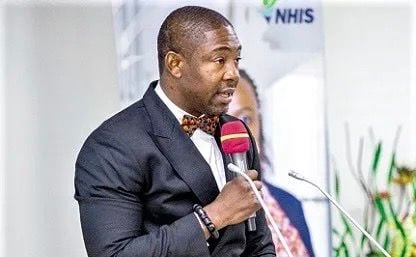The political landscape in Ghana has been roiled by the suspension of Chief Justice Gertrude Torkornoo by President John Dramani Mahama, sparking concerns about the integrity of the judiciary and the future of Ghana’s democracy. Former Minister of Health, Dr. Bernard Okoe-Boye, has emerged as a vocal critic of the President’s actions, warning of dire consequences should the Chief Justice’s removal proceed. He argues that such a move would consolidate the President’s control over all branches of government, effectively dismantling the checks and balances essential for a functioning democracy. This, he fears, would plunge Ghana into a state of lawlessness, where the rule of law is replaced by the “survival of the fittest.”
Dr. Okoe-Boye’s central argument hinges on the potential for an abuse of power. He points out that President Mahama already holds sway over the executive and legislative branches of government. The removal of the Chief Justice, he contends, would represent the final piece in a “dangerous takeover,” granting the President unchecked authority. This concentration of power, he argues, would erode the independence of the judiciary, leaving it vulnerable to political manipulation and jeopardizing the very foundation of Ghana’s democratic system. The courts, he emphasizes, are the last bastion of justice and fairness in a nation, and their impartiality is crucial to preventing a descent into anarchy.
Further deepening concerns about the fairness of the process is the perceived bias within the institutions involved. Dr. Okoe-Boye raises questions about the neutrality of the Council of State, which played a role in the suspension process. He points out that a significant majority of the Council’s members were appointed by President Mahama, suggesting a potential for inherent bias, conscious or unconscious, in their deliberations. This, he argues, casts doubt on the legitimacy of the prima facie case established against the Chief Justice. He extends this critique to the composition of the committee tasked with investigating the allegations against the Chief Justice, noting that its members were also appointed by the President.
Adding fuel to the controversy are President Mahama’s own pronouncements. Dr. Okoe-Boye highlights the President’s statement that a “reset” must begin with the Chief Justice. This, he argues, suggests a predetermined outcome and further undermines the impartiality of the process. In essence, he portrays the entire affair as orchestrated by the President, with the Council of State and the investigative committee serving as instruments to achieve a preordained conclusion.
The suspension stemmed from three petitions submitted seeking the Chief Justice’s removal. The specific allegations within these petitions remain somewhat unclear in the provided context, but their very existence served as the catalyst for the President’s actions. The subsequent formation of a five-member committee of inquiry was ostensibly meant to investigate these claims and determine the Chief Justice’s fate. However, the criticisms leveled by Dr. Okoe-Boye and other dissenting voices portray this committee not as an independent investigative body, but rather as a tool of the President, designed to rubber-stamp a predetermined outcome.
The implications of the Chief Justice’s potential removal extend far beyond the individual involved. Dr. Okoe-Boye argues that this action would set a dangerous precedent, weakening the judiciary and making it susceptible to political interference. This could have a chilling effect on the rule of law, undermining public trust in the justice system and creating a climate of fear and uncertainty. He warns that such a scenario would not only threaten individual liberties but also deter investment and economic growth, ultimately jeopardizing the stability and prosperity of the nation as a whole. The #SaveTheJudiciaryDemo serves as a testament to the growing public anxiety surrounding this issue and the potential consequences for Ghana’s democratic future.














